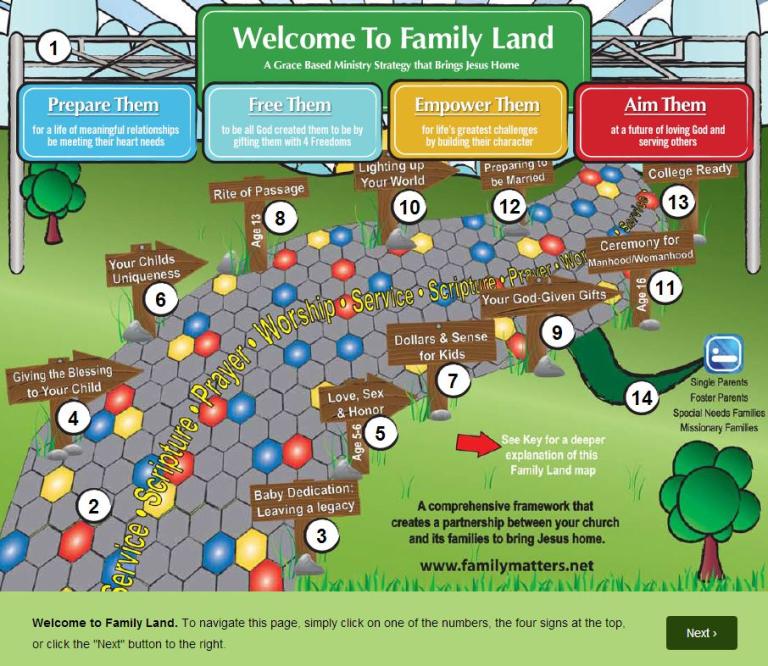That’s what I thought as I read the wisdom-packed pages of Tim Kimmel’s latest book Connecting Church & Home. Tim Kimmel is the founder of Family Matters and long-time cheerleader for grace-based parenting. You can check out the Family Matters site here for a lot of valuable parenting resources.
Connecting Church & Home is a quick, easy read that should be required for any family ministry leader. For that matter, any pastor who claims to care about families in the church should be embarrassed at not having at least thumbed through Kimmel’s book.
It’s not because Kimmel is awesome, though I’m sure he’s a great guy. It’s because the Biblical truth creatively packaged within its pages has never been more relevant to churches and families than right now.
The Goal
Tim Kimmel’s goal is simple: to help parents step up their game. I think this book achieves that goal — if parents and ministry leaders have the guts to read it.
That being said, Connecting Church and Home is not an adversarial read in any way. Quite the opposite. Even though Kimmel challenges the status quo in many churches and homes, his style is a supportive, friendly — dare I say — grace-based one that begins and ends with God’s unmerited favor on us all.
I have many concerns about what passes for family ministry in many churches these days. All too often, sincere servants of Christ engage in what I call faith-enabling instead of faith-strengthening. They become a crutch for parents instead of a workout coach. They try to sell their services as child-fixers to fit a niche in the marketplace, if you will — a niche they can never fill, no matter how hard they try. But they look darn good doing it.
It’s as if some sincere church leaders have resigned themselves to the fact that most parents are no good at this child-rearing stuff — so they’ll try to do it for them. A similar mindset infects many of our schools. But it can never work. Neither the church nor the school — nor the government — was created to be a parent.
Connecting to the Child’s Heart
Kimmel rightly nails the core of the issue in this way: The role of a parent is to connect to the heart of his or her child in such a way he or she prepares that child to more easily connect to the heart of God. (21)
A long-time pet peeve of mine has been the modern church’s commitment to splitting up the family during worship service. [See my post Where Have All the Children Gone? ] I realize there can be arguments on all sides of this issue, but it’s always felt as if we were unintentionally creating two different churches that, over time, would inevitably conflict with one another. Rather than grafting in the next generation to the existing Body, we plant them in another field altogether — then seem surprised when they want little to do with our approach to the Faith.
Along the same line of seeking generational unity, Kimmel shares a paradigm that accurately captures the broader schism over how to minister to families in the Church at large. He cites a key conversation with a friend, Joe Erhman, that I found illuminating:
“I notice three categories of church.
- There are Word churches. Their focus is on powerful preaching and teaching of the Scripture… a sophisticated understanding of …doctrine, theology, and orthodoxy….
- The second kind…is Wonder churches. This is a church that seems keenly aware of the greater battle going on between the forces of evil and Almighty God…. Charismatic and Pentecostal churches come to mind….
- Then there is the third kind…the Work church. This is a church that is extremely sensitive to the distress going on within the human drama around them. They see poverty, high control, abuse, and injustice and are quick to jump into the middle of it and do something about it…. The Catholic Church has traditionally played this role throughout church history.
Question: Which of these three is the church supposed to be?”
The answer just about knocked me out of my chair. It’s supposed to be all of them… simultaneously — in balance and harmony. (92)
Kimmel also offers a creative paradigm for connecting grace-based parenting with grace-based church ministry. His work is based on his own church’s careful journey to uncover a more biblical approach to family ministry. Essentially, they started at the Bible and went from there. Yet he is quick to point out that he is not trying to spark some new “movement:”
This isn’t a “movement” within family ministry. I’m leery of movements — at least church movements…. God’s transforming grace was never meant to be a”flash point” (i.e. movement) on Church history’s calendar, but an anchor tenant of the gospel. All we’re talking about in this book is the way it was supposed to be from the beginning. (86) [ Tweet this! ]
Welcome to Family Land!
I love what their team has done in creating a terrific, Disney-esque tool called Family Land — a “comprehensive ‘Big-Picture’ strategy for family ministry.” It’s a creative, interactive tool designed to give a clear yet playful road map for churches, families, and kids to truly connect in this grace-based journey. You can click here to explore further but here’s a glimpse of the fun that awaits:
The Elephant in the Room
For those still unsure whether the book will be worth the read, I leave you with this closing thought from Kimmel as an example of the wisdom to be easily gleaned from its relatively short 137 pages:
Friend, there’s a lot of family ministry and Christian parenting going on that contradicts the message its trying to send to the people involved. I see a lot of emphasis placed on spiritual performance, behavioral report carding, creating biblical elitism, guilting people who struggle, shaming people who fall, nagging people who are slow to buy in, marginalizing people who question, and rejecting people who refuse to toe the line. My question: Is that how God treats us? (48)
Kimmel defines grace-based relationships as simply this: “treating others the way God treats us.” Sounds like a plan truly connect church and home.













